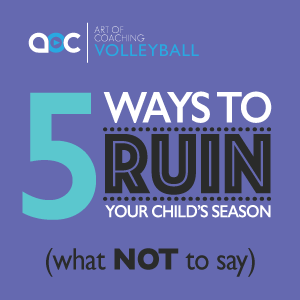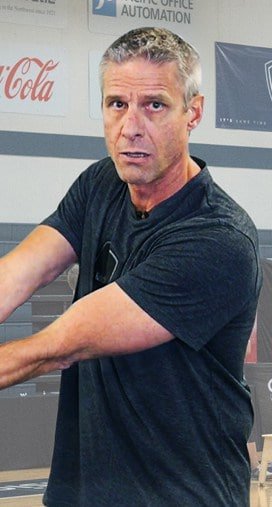By Peter Ogle
 Parents, even well-meaning moms or dads, can often do more harm than good while trying to help their children excel at sports. Here are 5 things you should never do when your son or daughter is playing on a youth sports team.
Parents, even well-meaning moms or dads, can often do more harm than good while trying to help their children excel at sports. Here are 5 things you should never do when your son or daughter is playing on a youth sports team.
- Continually tell them that the coach is deficient.
- Say things to them throughout the season like, “Your coach is not seeing the real you,” referring to the fact that you are a better player/leader/assistant coach than they are giving you credit for.
- Tell them that the coach is using them the wrong way – wrong position, wrong time, etc.
- Take it upon yourself to teach skills in a way that is distinctly different than the way the coach is teaching them, or hire a private coach to work with your child without the knowledge and cooperation of the team’s coach.
- Tell your child, “The coach doesn’t like you. It must be personal.”
When you do any or all of these things, here are the reactions you can expect from the kids:
- They look for excuses for failure.
- They don’t give the skills being taught a complete effort to determine if they will be beneficial.
- They’re confused as to which directions to follow, causing hesitation in what they are doing in practices or competitions.
- They defy the rules and routines of the coach, and it becomes a problem.
The end result:
- The child never learns to take responsibility for actions and performance.
- The child becomes frustrated because he/she isn’t committed enough mentally to fight through tough times.
- The child experiences further frustration because he/she doesn’t have the confidence that comes from practiced repetitions.
- The child has a poor team concept and focuses too much on himself/herself. This often alienates the child and has an adverse effect on teammates.
Peter Ogle is the head volleyball coach at both La Jolla Country Day School and Coast Volleyball Club in California. He is also a published author on parenting in youth athletics.


